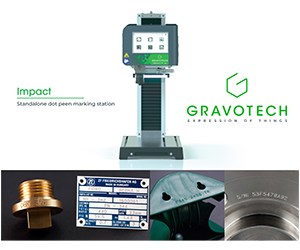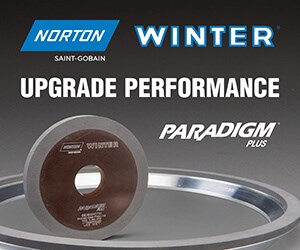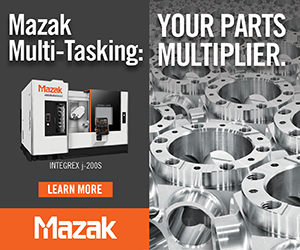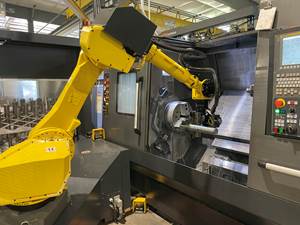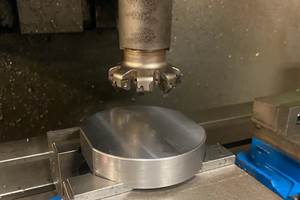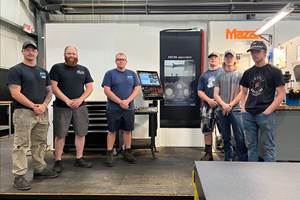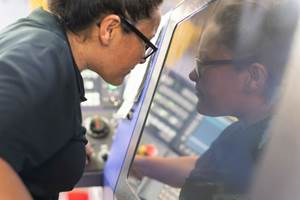Job Shop Grows With Punch Press Technology
GP Precision, a New Jersey-based precision sheet metal fabricator, was founded in 1966 to serve the prototype market of the electronics industry. Their original shop in Morris Plains, New Jersey, was expanded three times before they moved to Hackettstown in 1985.
GP Precision, a New Jersey-based precision sheet metal fabricator, was founded in 1966 to serve the prototype market of the electronics industry. Their original shop in Morris Plains, New Jersey, was expanded three times before they moved to Hackettstown in 1985. This doubled their shop size and allowed them to expand their capabilities to include production runs. They moved again in October 1994, increasing their floor space from 5,000 to 20,000 sq. ft.
Today, GP Precision provides design engineering and production services for the telecom, medical, computer, fiber optic and audio markets with prototype and JIT monthly blanket orders. Parts are supplied complete, including plating, painting, silk screening, assembly and packaging. They have built their reputation on the quick turnaround of high quality parts in aluminum, steel, stainless steel, brass, copper and plastics. Their ability to keep up with this growth is attributable to how they've applied new punch press technology as it has become available.
GP Precision's capabilities include shearing, punching, forming, deburring, welding, spot welding, and hardware installation. The key to their success, according to owner/president, Art Cubbage, is the use of computerized equipment to process jobs quickly and accurately and limit downtime. GP Precision can produce 5,000-piece runs in three-to-four weeks in just about half the time it takes the majority of their competitors. Prototypes are often produced in as little as a day. Much of their ability to respond quickly has been provided by the use of CNC punch presses.
GP Precision's original move toward automation was a Super 30/30 from Strippit, Inc. (Akron, New York), a semi-automatic hole punching machine that is still in use today for less demanding applications that do not require a turret press. In 1984, the company purchased its first CNC punching machine, a Strippit CAP 1000. This computerized machine quadrupled their output. The amount of work they could do in 70 hours on the Super 30/30 could now be done in two days on the CAP 1000. "This enabled us to take more high volume jobs," Mr. Cubbage says. It also necessitated the move to Hackettstown, so they would have room to handle the increased work load.
In 1992, they purchased their first 1000R CNC turret punch press (now called the 1000/20). Although the running speed on the 1000/20 was the same as the CAP 1000, the new machine offered faster set-up times because of the high-speed turret design and new features like auto indexing. This allows tools to be rotated via the computer control so that the machine can punch more with fewer tool changes. The 1000/20 also features multi-tool, which increases the tool-carrying capacity of the turret.
In 1993, GP Precision purchased a Strippit 1000 XP/20, which provided "50 percent more output in the same floor space," Mr. Cubbage says. "This was very important in our old building because there was limited space." In 1994, they added another 1000 XP/20. With axis speeds up to 3350 inches per minute and hit rates up to 330 hits per minute in 11 gauge material, the 1000 XP's were twice as productive as the 1000/20 press. Once again, GP Precision found themselves having to move to larger quarters to accommodate the work.
Because of the rapid turnaround, GP Precision is now able to help its customers accurately schedule, "Just In Time" deliveries and keep costs down. "We're much more competitive because the XP is faster," Mr. Cubbage says. "We can take higher volume jobs now. We were on the outside edge before we got the XP machines. There is a major difference in volume output and improved turnaround. This makes us a better vendor to our customers."
He is also very pleased with the speed at which his operators were able to learn and use the PC-based controls that drive the machines. Parts are programmed in the engineering department, downloaded via floppy disk to the punch press and modified on the press if needed. PC-based equipment has also proven to be easy to service, according to Mr. Cubbage. "If a hard drive crashes, you simply swap the CPU and you're up and running," he says, but was quick to add that in the nine years they have used these machines, they have only had to replace one bulb.
Increasingly capable punching technology has helped GP Precision increase their productivity from average lot sizes of 70 parts 10 years ago to averages of 250 today. The company plans to add another Strippit punch press within the next year to help them keep up with the work volume and maintain their rapid turnaround. "Most of our competitors have a six-to-eight-week turnaround," Mr. Cubbage says. "Our normal turnaround is three-to-four weeks." The technology enables them to do that.
Related Content
Same Headcount, Double the Sales: Successful Job Shop Automation
Doubling sales requires more than just robots. Pro Products’ staff works in tandem with robots, performing inspection and other value-added activities.
Read MoreAll-Around Mill Improves Productivity and Cost for Valve Job
Adopting a mill with a double-negative rake and pockets compatible with multiple insert geometries enabled Progressive Metal Service to increase feed and lower scrap rates for a valve.
Read MoreTop Shop Builds Upon Employee Ownership for Future Success
In its quest to become the Fox Valley’s best-in-class employer, A to Z Machine has adopted an ESOP, expanded benefits and invested in apprenticeships.
Read MoreWill the “Great Resignation” Become an Opportunity for Manufacturers? Get Ready for the Returning 3 Million
The Great Resignation will become a Great Reapplication when employees currently able to stay out of the workforce return to it looking for something better. Machining employers that are already evaluating candidates for fit, without demanding specific skills coming in, might be positioned well to draw upon this wave.
Read MoreRead Next
3 Mistakes That Cause CNC Programs to Fail
Despite enhancements to manufacturing technology, there are still issues today that can cause programs to fail. These failures can cause lost time, scrapped parts, damaged machines and even injured operators.
Read MoreThe Cut Scene: The Finer Details of Large-Format Machining
Small details and features can have an outsized impact on large parts, such as Barbco’s collapsible utility drill head.
Read More



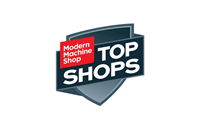
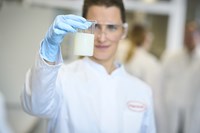
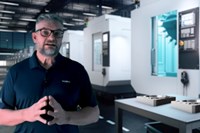



.png;maxWidth=300;quality=90)
.png;maxWidth=300;quality=90)


